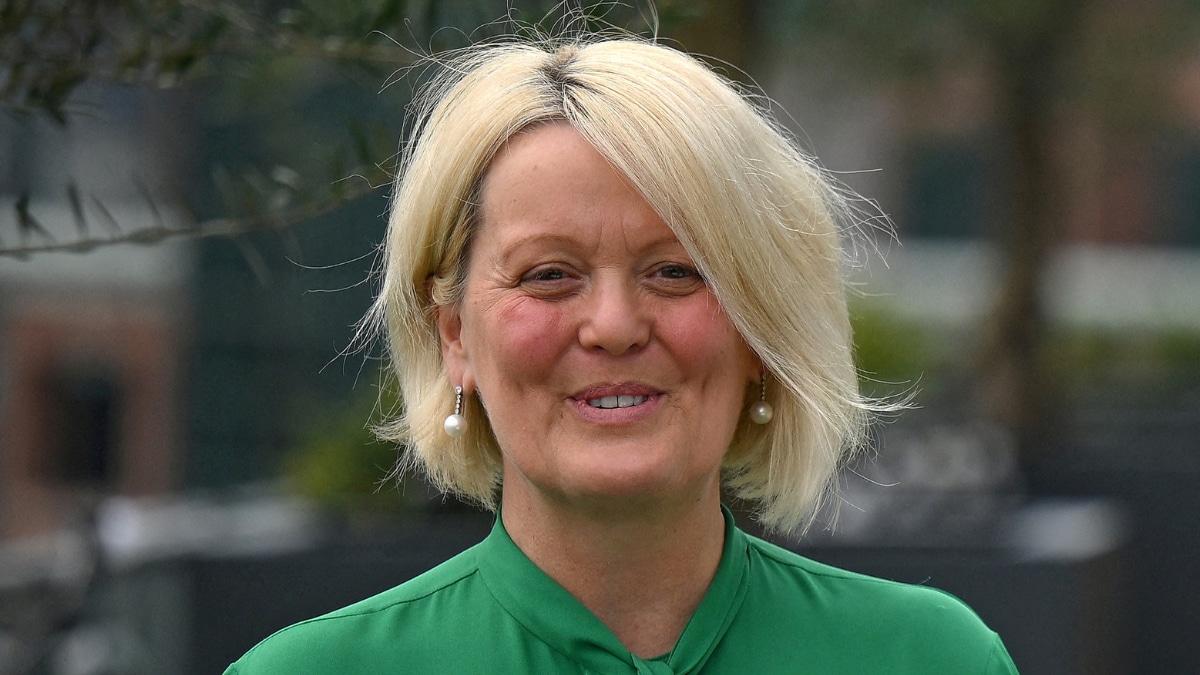The chief executive of Britain’s NatWest bank, Alison Rose, stepped down Wednesday after admitting a “serious error of judgment” in speaking to a reporter about the banking affairs of arch-Brexiteer Nigel Farage.
Farage, former leader of the Brexit Party and the anti-immigration party UKIP, had complained about the closure of his account with the upmarket Coutts, the bank used by the late Queen Elizabeth II and subsidiary of NatWest.
He said he was removed as a client for his political views. But, in a report which it has since apologised for, public broadcaster the BBC suggested Farage’s accounts were closed because he did not have sufficient funds to remain a client of the prestigious establishment.
Reacting to the departure of Rose after nearly four years at the helm, Farage called on the entire board of NatWest to resign. “The first rule of banking is you have to obey client confidentiality. So they have made a complete and utter mess of this,” he told Sky News.
Farage, a Eurosceptic politician and now a television presenter, campaigned for decades for Britain’s withdrawal from the European Union and was a key figure in the 2016 Brexit referendum.
UK media said pressure for Rose to step down came from within the British government, which owns 39 percent of NatWest.
– ‘Sad moment’ –
NatWest was formerly known as Royal Bank of Scotland — the lender rescued following the 2008 global financial crisis with £45.5 billion of UK taxpayers’ cash in what was the world’s biggest banking bailout.
Rose, the first female CEO of a major UK bank, decided to rebrand the lender after her appointment in 2019, while the government has gradually cut its stake as the bank recovered.
But the bank is in fresh crisis after Rose admitted she was the source for the BBC story, and acknowledged “a serious error in judgment” in discussing Farage’s relationship with the lender.
NatWest’s board on Tuesday gave its backing to Rose, a 30-year veteran of the company. But by early Wednesday it announced she was stepping down.
“The Board and Alison Rose have agreed, by mutual consent, that she will step down as CEO of the NatWest Group,” board chairman Howard Davies said in a statement.
“It is a sad moment. She has dedicated all her working life so far to NatWest and will leave many colleagues who respect and admire her.”
The board has appointed Paul Thwaite, current CEO of the commercial and institutional business, to take her place for an initial period of a year.
“A further process will take place in due course to appoint a permanent successor,” it added.
– Business or political decision? –
Addressing her dealings with the BBC journalist earlier, Rose admitted that she had given the reporter “the impression that the decision to close Mr. Farage’s account was purely commercial”, calling it a “serious error of judgment”.
Farage obtained a 40-page report regarding the closure of his account from the 331-year-old institution.
The report, according to him, repeatedly mentioned Brexit and his support for former US president Donald Trump.
The politician did not “align with the bank’s purpose and values” and was “seen as xenophobic and racist”, he quoted it as saying.
In the statement announcing her departure, Rose said she was “immensely proud of the progress the bank has made in supporting people, families and business across the UK, and building the foundations for sustainable growth”.
“My NatWest colleagues are central to that success, and so I would like to personally thank them for all that they have done,” she added.
(This story has not been edited by Apna TPO staff and is published from a syndicated news agency feed – AFP)


